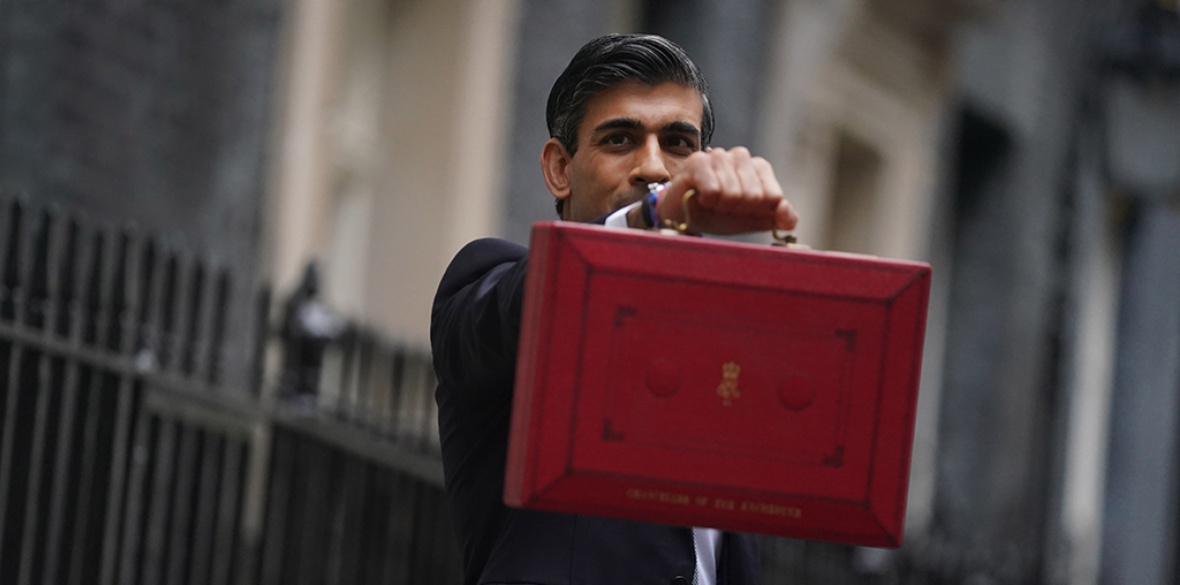This is the last article you can read this month
You can read more article this month
You can read more articles this month
Sorry your limit is up for this month
Reset on:
Please help support the Morning Star by subscribing here
RISHI SUNAK has delivered a Budget that confirms the turn inside the Tory Party away from austerity spending cuts.
It confirms that this is Boris Johnson’s government, eager to spend and intervene in the economy in a way that we have not seen Conservatives do for a very long time.
To win a new consensus on government spending and investment is an important victory for anti-austerity campaigners.
But we should always remember that this is still a Tory government. The £150 billion spending increase over the next three years is not even close to enough to repair the damage they inflicted on this country in the last decade.
Shadow chancellor Rachel Reeves drummed this message home in a strong response that clearly rattled the Tories in Parliament.
For example, the Treasury was trumpeting the 75 new “family hubs” over the weekend, intended to provide a one-stop shop for various support services.
But this is after the Tories closed 1,300 Sure Start centres which also provided a one-stop shop for various family support services.
Per pupil schools funding is set to increase. But this will only be enough to take it back to the 2010 levels by 2024 — 14 years, an entire generation, wasted.
And the cut in the “taper rate” for universal credit — the rate at which UC payments are removed once someone starts working — is to be welcomed.
But, while the numbers are still being crunched, it doesn’t look like enough to compensate properly for the £20-a-week cut that saw 5.5m of the poorest households lose £1,000 a year.
To put it in context, Sunak’s spending increase is an average of 3 per cent growth a year, which is below the 4 per cent average annual increase New Labour managed in the decade before the financial crisis.
And it’s even below the 4.1 per cent increase the Tories pushed through in 2019.
The cuts to alcohol duties, making the system less erratic overall, will no doubt attract headlines. It’s hard to argue against broadly sensible reforms here. But this should distract from some of the real shockers in the Budget — reminders that this is, still, a Conservative government with Conservative priorities.
Particularly shocking was Sunak’s decision to drive a coach and horses through the government’s green rhetoric.
A week ahead of the crucial Cop26 climate meeting in Glasgow, Sunak’s Budget made the stupefying decision to cut air passenger duty on domestic flights.
Domestic flights are the easiest to substitute for lower-carbon alternatives, like rail. Yet Sunak is boasting about encouraging them with a tax cut.
How can the British government now have any credibility to demand major developing countries do more on climate change?
All any country has to do is point at this tax cut, and call them hypocrites. And they’d have a point.
The £30bn green investment announced is what the Institute for Public Policy Research thinks is required every year to reduce our greenhouse gas emissions, not a one-off commitment.
Funding for essential research and development has been pushed a further two years into the future. Sunak spent more time in his speech on alcohol duties than he did on climate change — if you want a sense of his priorities.
Above all else, for all Sunak’s boosterism, the hard figures presented alongside this Budget tell a very different tale.
With inflation expected to rise to at least 4 per cent next year, the result of the global supply chain crisis restricting the supply of key goods, millions of families will see further squeezes in their standard of living.
The “lost decade” for living standards under the Tories looks set to continue. And while the official Office for Budget Responsibility forecasts now claim Covid-19 did less long-term damage than previously expected, other credible forecasts think the impacts will be much worse.
Rachel Reeves was right to say Sunak was living in a “parallel universe” compared to the experience of millions of working people.
But Labour is out of government, and the election is a long way off. It’s now down to trade unions to recruit, organise and fight for the kind of inflation-busting double-digit pay rises that Merseyside lorry drivers just secured.











